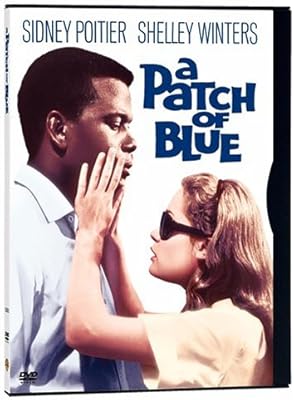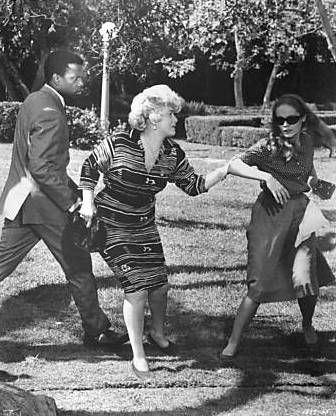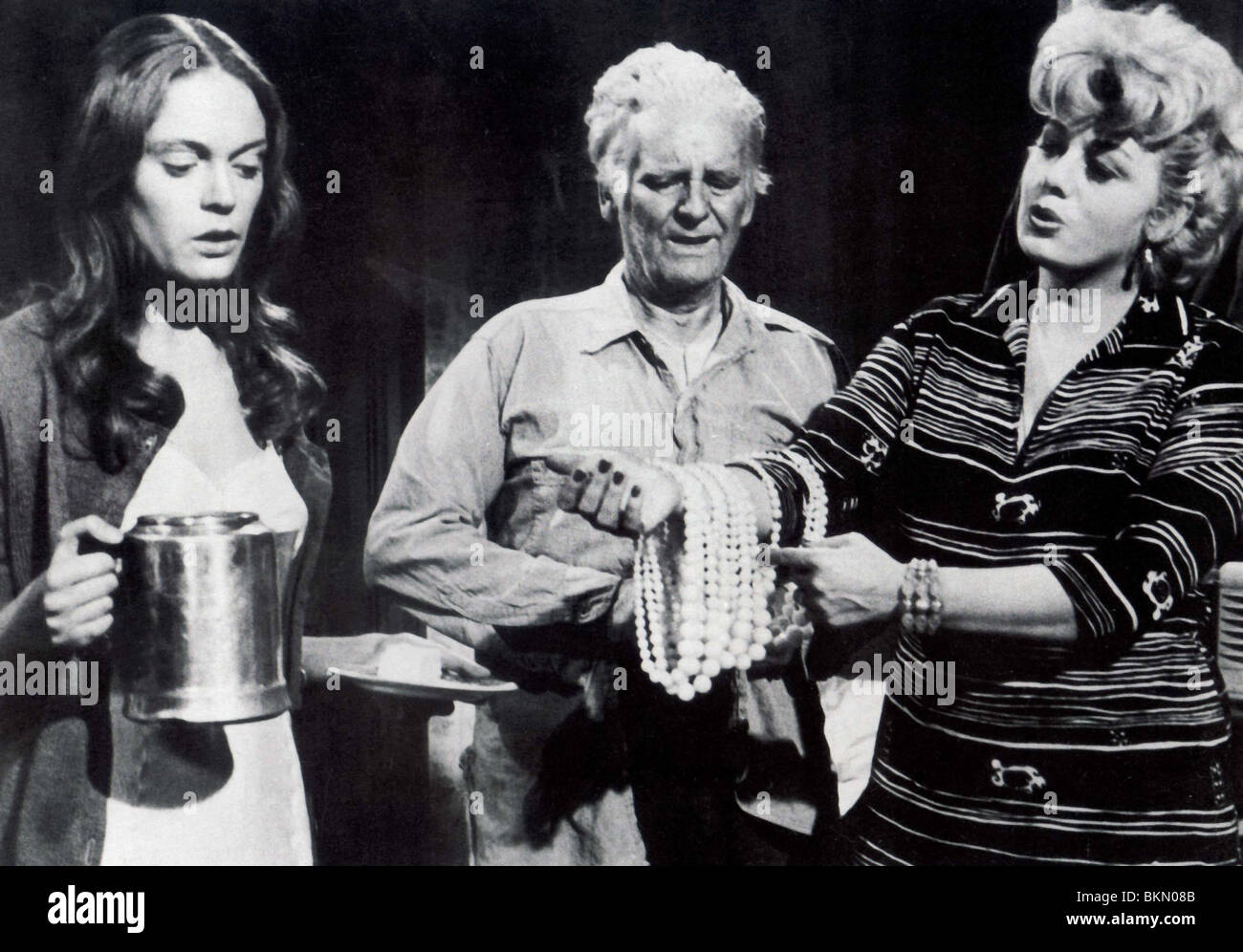← Back to Reviews

in
A Patch of Blue
Powerhouse performances by the three leads are the main attraction of A Patch of Blue, an emotionally charged 1965 drama of family dysfunction, abuse, and bigotry that had this reviewer riveted to the screen with his stomach in knots.

Salina is a sensitive, uneducated blind girl who lives in a cramped tenement with her alcoholic and abusive mother, Rose-Ann and her equally alcoholic and abusive grandfather. Salina's only respite from the virtual prison where she is lives is visits to the local park where one day she meets Gordon, an intelligent black office clerk who begins to help Salina learn survival techniques in the sighted world, but eventually becomes determined to help Salina escape her miserable life while in the process, Salina finds herself falling in love with Gordon.

Director and screenwriter Guy Green has crafted an engaging tale of a young girl who's been trapped in this dysfunctional existence for so long that she doesn't know how dysfunctional it is. Green's screenplay reveals most of Salina's backstory through her meeting with Gordon, including how she lost her eyesight, which reveals why Salina has been kept in darkness ever since, rarely leaving her house and not knowing how to go grocery shopping or even how to use a phone.

Salina's plight tugs at the viewer's heartstrings immediately and we want to see her escape from the life that she's been living and we are offered hope through her meeting with Gordon. Conflict is revealed for Gordon when he and Salina share their first kiss and Salina says she loves him. Gordon never says he loves her. though there are feelings there. but there is something in his past that has him keeping an emotional distance, hinted at in scenes with his brother, but never fully revealed.

The film takes a simple but effective tac in showing the viewer how difficult being sightless is in two very powerful scenes. One is when Salina's in the park at night and a sudden thunderstorm stirs up, striking more terror in her than we have seen up to that point. We also see it later when her grandfather refuses to take her to the park and she tries to get there by herself, where she is informed she has no "right" to be alone. Things look grim for Salina when Rose-Ann sees Mark and Salina for the first time, but, in a refreshing change of pace, the bigotry angle of the storyline doesn't beat the viewer over the head. The scene where she does finally strike back at her mother does induce cheers and hope.

Elizabeth Hartman gives a luminous performance as Salina, a performance that completely endears the character to the viewer and earned her an Oscar nomination for Outstanding Lead Actress. Shelley Winters won her second Oscar for Best Supporting Actress for her ferocious performance as Rose-Ann and Wallace Ford also scores as Salina's grandfather. And Sidney Poitier offers one of his warmest and most engaging performances as Gordon. A sensitive, angry, and hopeful tale of loneliness and friendship that hits all the right notes.
Powerhouse performances by the three leads are the main attraction of A Patch of Blue, an emotionally charged 1965 drama of family dysfunction, abuse, and bigotry that had this reviewer riveted to the screen with his stomach in knots.

Salina is a sensitive, uneducated blind girl who lives in a cramped tenement with her alcoholic and abusive mother, Rose-Ann and her equally alcoholic and abusive grandfather. Salina's only respite from the virtual prison where she is lives is visits to the local park where one day she meets Gordon, an intelligent black office clerk who begins to help Salina learn survival techniques in the sighted world, but eventually becomes determined to help Salina escape her miserable life while in the process, Salina finds herself falling in love with Gordon.

Director and screenwriter Guy Green has crafted an engaging tale of a young girl who's been trapped in this dysfunctional existence for so long that she doesn't know how dysfunctional it is. Green's screenplay reveals most of Salina's backstory through her meeting with Gordon, including how she lost her eyesight, which reveals why Salina has been kept in darkness ever since, rarely leaving her house and not knowing how to go grocery shopping or even how to use a phone.

Salina's plight tugs at the viewer's heartstrings immediately and we want to see her escape from the life that she's been living and we are offered hope through her meeting with Gordon. Conflict is revealed for Gordon when he and Salina share their first kiss and Salina says she loves him. Gordon never says he loves her. though there are feelings there. but there is something in his past that has him keeping an emotional distance, hinted at in scenes with his brother, but never fully revealed.

The film takes a simple but effective tac in showing the viewer how difficult being sightless is in two very powerful scenes. One is when Salina's in the park at night and a sudden thunderstorm stirs up, striking more terror in her than we have seen up to that point. We also see it later when her grandfather refuses to take her to the park and she tries to get there by herself, where she is informed she has no "right" to be alone. Things look grim for Salina when Rose-Ann sees Mark and Salina for the first time, but, in a refreshing change of pace, the bigotry angle of the storyline doesn't beat the viewer over the head. The scene where she does finally strike back at her mother does induce cheers and hope.

Elizabeth Hartman gives a luminous performance as Salina, a performance that completely endears the character to the viewer and earned her an Oscar nomination for Outstanding Lead Actress. Shelley Winters won her second Oscar for Best Supporting Actress for her ferocious performance as Rose-Ann and Wallace Ford also scores as Salina's grandfather. And Sidney Poitier offers one of his warmest and most engaging performances as Gordon. A sensitive, angry, and hopeful tale of loneliness and friendship that hits all the right notes.
